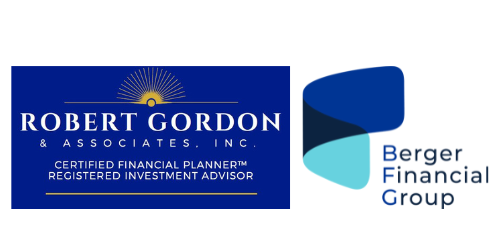The Worst Decision You Could Make Is No Decision At All
Submitted by Robert Gordon & Associates, Inc on May 6th, 2019
It’s official: Money is stressful. Surveys consistently show that money is the top source of stress for American adults. More than a quarter of Americans say they feel stressed about money most or all of the time. Only 30 percent rate their financial security as high, and more than two-thirds believe that more money would make them happier.
People deal with stress in many different ways — sometimes healthy, often not. People commonly deal with anxiety by avoiding whatever it is that makes them anxious. Unfortunately, if you avoid dealing with your finances, you’ll likely create more financial problems, and more anxiety, in the long term.
Money matters are too important to ignore. Financial illiteracy is linked to money mismanagement and to debt. Debt, in turn, is associated with lower self-esteem, lower productivity and greater stress. Unsurprisingly, research has also linked financial strain to depression.
If you’re struggling with financial avoidance or financial denial, you can take action to get your money matters back on track.
Warning signs
How do you know if you’re avoiding reality when it comes to finances? Here are some of the clues:
- You try to put money and finances out of your mind.
- You avoid talking about money with family and friends.
- You avoid opening bank statements or credit card bills.
- You don’t know what your credit score is.
- You don’t know your net worth.
If you can relate to any of these feelings and behaviors, it may be time to take a hard look at your relationship with money.
Beliefs and attitudes
We develop our beliefs and attitudes about money early in life. Often, we aren't even consciously aware of what our beliefs are, let alone where we learned them. If you’re dealing with financial avoidance or financial denial, it can help to think critically about the money beliefs you learned in childhood. Think about what your parents taught you about money. Talk to family members about their money beliefs. Then try to challenge your existing beliefs about money.
Many people feel embarrassed about their debt, ashamed that they let bank statements pile up unread. But that shame keeps you stuck. Try to move past the self-blame so you can take some concrete steps toward financial health.
Take action
Keep tabs. Tracking your income and your spending is critical to healthy finances. If you’re not tracking money coming in and money going out, you don’t know if you’re spending your resources on the things that really matter to you.
Develop a spending plan. For some people the word “budget” like the word “diet,” calls to mind feeling deprived. Instead of figuring out where to cut back, think about what you want to spend. If going to concerts or sporting events is really important to you, you might decide to spend more money on those outings and less on dining out or cable television. By making such decisions more intentional, you’ll get the most bang for your buck.
Make it easy on yourself. Use automated systems as much as possible. Arrange to have a portion of your paycheck automatically deposited into your savings account and your retirement account. Set up automatic reminders to alert you when a bill is due. It’s a lot harder to make a bad decision when the decision is out of your hands.
Use tools. Technology makes it easier than ever to stay on track financially. A variety of software programs and apps can help you track spending and set spending and saving targets.
Seek professional help
It’s not easy to challenge your deeply held beliefs or to change ingrained behaviors. No matter how good your intentions, change is difficult. The CFP® Professionals at Robert Gordon & Associates have seen it all when it comes to finances. Let us use our experience and resources to help you think about your current financial situation and help you make the best decision. Call Us TODAY to schedule a FREE INITIAL CONSULTATION!

